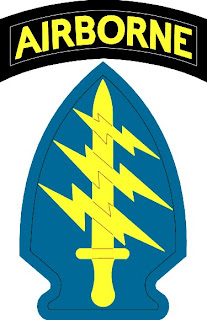A Lost Heart and Mind
--Les Tournesols, van Gogh
War is done they've come back home
But they're the ones that lost
--Shiloh Town, Tim Hardin
I can see his face and I hear the words he said
And my memories ache and my senses burn
Did he dream too late will we ever learn
-- Testify,
Melissa Etheridge
Another soldier dies slippin’ into a ditch,
we call it a “combat death,”
just to give it a meaning…
My point is that sometimes the army
has to be concerned with something
bigger than the truth
--The Messenger (2009)
It's the same old seven and six
____________________
We Meant Well is a fine tragi-comedic telling of one man's experience with nation-building in Iraq.
Subtitled, "How I Helped Lose the Battle for the Hearts and Minds of the Iraqi People," Peter van Buren, a career Foreign Service officer, offers a series of vignettes which puts the surrealism of the State and Military Department's efforts on display. One -- "Missing Him" -- deals with a troop's suicide, and the story is sadly timeless, dovetailing as it does with Ranger's experiences in his war many years before.
The "him" is Private First Class Brian Edward Hutson, who committed suicide in Iraq "after only a few months in the Army and even less time at the Forward Operating Base. ... Nobody really had befriended him" (243).
This is a direct indictment of the Army and their concept of leadership. What kind of Army would have a personnel policy that sends young, unformed personalities into combat environments after only a few months of Army exposure? This young private was shipped over with only Basic and Advanced Individual Training (AIT) under his belt.
What kind of Commander would be so oblivious that he would not assign a mentor to buddy up with newly assigned troopers to help ease them into their new reality? This applies to leaders from Second Lieutenant to General Officer. What kind of NCO or Squad Leader would not be cognizant enough to recognize the danger symptoms of pre-suicidal behavior?
Did anybody care? It is too late once the bullets are launched. At the Army level (TRADOC) and recruiting command there must surely be a personality inventory taken before induction that would indicate potential problems before they occur. That is the point of taking pre-induction personality inventories.
Has the Army's pre-induction processing also suffered from a jaded attitude and budget cuts? What should be a fairly simple leadership problem is failing as far too many soldiers have slipped through the cracks.
While at Ft. Benning following return from Vietnam, Ranger clearly remembers the high suicide rate on post. His impression was that it was officially swept under the rug despite its being common knowledge. This was over 15 years before PTSD would become an official diagnosis in the DSM manual, thereby receiving legitimacy from the medical community.
*It is hard to find any definitive suicide figures for either Vietnam or the current conflicts. Some have reported more deaths from Vietnam veteran suicides over the years than from actual combat deaths, but it is hard to ascertain for the usual reasons: The death might have been a single-vehicle accident; drugs or alcohol may have been the culprit; the reporting agencies do not list "suicide" as a kindness to the survivors, or to allow for insurance benefits. Ranger is certain some of his fellows from the Vietnam War were suicides, though without the usual note left behind.
PFC Hutson died as a result of the negligence of poor command policies, or because of a lack of command policy. This is strange as the Army also has suicide-prevention programs. Clearly this shows another policy disconnect as these programs are still in effect and PFC Hutson is still dead.
We should have a memorial to the suicides of all of our wars.
Ranger's condolences to PFC Hutson's family and friends.
Labels: Iraq, missing him, nation building, peter van buren, PFC brian edward hutson, war on terror, we meant well












5 Comments:
The high suicide rate in America overall is being swept under the rug.
The military is just following society's lead.
cloud of unknowing...
It is difficult to even find names of suicides; sure those who die in-theater now wind up on the regular DOD list, tho' rarely listed AS suicides (the infamous non-combat incident). Those who die by their own hand after return, or worse, after ETS?
You find them only by accident if you read every hometown paper in the nation.
And they are stigmatized as being "weak"....the whole "real men don't get PTSD" concept seems to apply.
Yes, Labrys, the DoD listing as 'non-combat related' death leads one to presume suicide. DoD also releases suicide statistics monthly on their site along with stating how seriously the military is addressing this issue. Hmmmm... There are not enough providers to help soldiers. But try making inroads to offer assistance, the military is not interested. This truly saddens my soul, but I'll continue looking for alternatives.
R.N. Yes, I know every non-combat related is not necessarily a suicide; but some are as I find when I run across the home-town paper from time to time.
I get the DOD suicide figures every month, but of course, they do not supply the names. And those do not at all account for service members that have ETS'd.
Post a Comment
<< Home